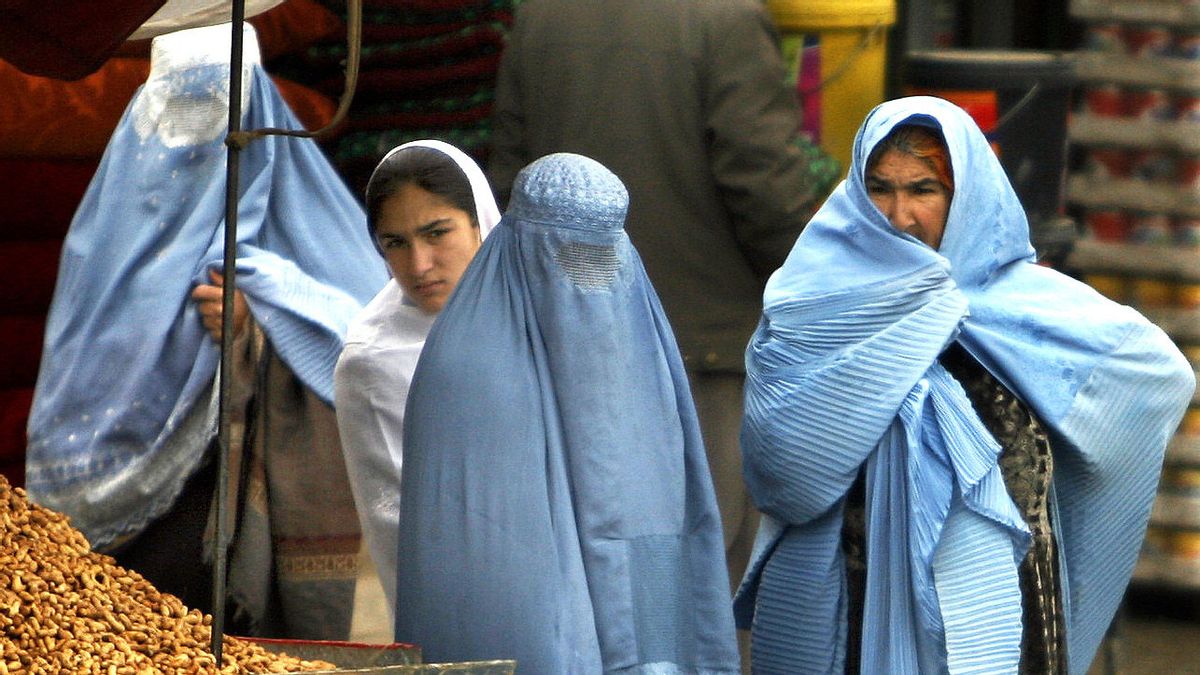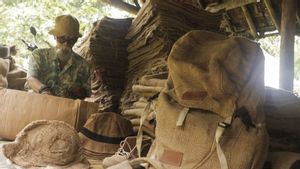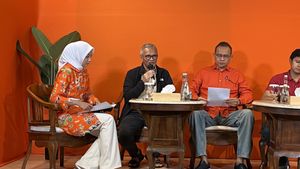JAKARTA - During the reign of the Taliban (1996-2001), Afghanistan was like a prison for women. The Taliban are fundamentally Islamic law enforcement. The Taliban's move is considered no better than the Mujahideen in terms of discrimination against women. Even though the rate of rape and forced marriages is decreasing, the Taliban is actually curbing women's civil rights, from going to school to working.
The Taliban's confinement makes Afghanistan the most dangerous country for women. After the Soviet-Afghan War (1979-1989), conditions in Afghanistan were far from calm and peaceful. The civil war between the Mujahideen commanders continued. At that time the war between the Tajiks and Pashtuns became the most memorable.
The election of Burhanuddin Rabbani of the Tajik ethnic group as interim president in 1992, then president in 1993 caused the jealousy of the Pasthun ethnic group. This is because the Pasthun are considered more suitable to carry out the mandate to lead Afghanistan. The Pashtun Mujahideen group formed an Islamic fundamentalist group called the Taliban in September 1994 as a means of resistance.
They are dominated by a group of students from the Pashtun ethnic group who want the restoration of security and peace based on real Islamic law. The Taliban resistance then got the support of the small people of the Taliban. They are considered as saviors. Thanks to that, Afghanistan was completely controlled by the Taliban.
“The Taliban emerged in 1994 as a group of Mujahideen troops who called themselves students of religious schools. The Taliban movement began in the south of Afghanistan and continued to advance north into mountainous areas controlled by the Northern Alliance."
"By the end of the 1990s, the Taliban not only controlled the capital, but had controlled almost all of Afghanistan. The opposition force, known as the Northern Alliance, was able to control only a very small part of northern Afghanistan. However, most countries in the world do not recognize the Taliban regime. as the legitimate government of Afghanistan,” said Anton Kurnia in the book From Taliban Prison Towards Faith (2007).
After taking full power in 1996, the Taliban began to reform the Afghan government system. They did not forget their original goal to form a regime that fundamentally implemented Islamic law. They became an uncompromising regime and very strict in applying Islamic law.
As a major step, the Taliban moved quickly to ban television broadcasts, watching movies, and listening to music. In addition, the Taliban also banned the circulation of liquor to destroy works of art depicting living creatures. Moreover, illustrations in textbooks are also prohibited.
“Doctor Nazir Abdul, a pediatrician, explained that when the Taliban came to power in Kabul they banned all books with illustrations, and burned all illustrated books they found in public. Armed Taliban officers from the Department of Moral Promotion and Prevention of Immorality stood at the back of the lecture hall while the lecture was taking place, keeping the lecturers from drawing anatomical diagrams on the blackboard,” said Greg Mortenson and David Oliver Relin in the book Three Cup of Tea (2006).
Discrimination against women
Islamic law that is applied fundamentally by the Taliban goes into all lines, including women's civil rights. Although when the Taliban replaced the Mujahideen, rape and forced marriages decreased, women in fact lived like a prison called Afghanistan.
They are restrained. Women were barred from going to school, limited employment opportunities, and had to cover their bodies with the burka in public. All the movements of the Afghan women are monitored by the Taliban Religious Police. They patrol the streets to keep an eye on Afghan women who are not wearing Islamic attire.
Women are also prohibited from wearing white socks because they are considered sexually provocative. If women walk too fast or talk too loudly they can be punished, beaten.
“Women are declared responsible for taking care of their household, and their husbands, brothers or fathers must provide for their basic needs. The custom of Afghan women washing clothes by the river is prohibited by the Taliban. Those who violate will be brought to his house and his husband punished. Female patients are required to go to a female doctor. If a woman is to be examined by a male doctor, the female muhrim must accompany her during the examination and both the patient and the doctor must be separated from the veil.”
“Male doctors are not allowed to touch or look at the female patient's body parts, except the parts that are sick. Male doctors are also not allowed to enter female patient rooms, unless circumstances require it. Female and male doctors are not allowed to sit together or converse. If there is a need for discussion, the two must be separated,” said Taufik Adnan Amal in the book Politics of Islamic Sharia: From Nigeria to Indonesia (2004).
These provisions were deliberately made so that Afghanistan would not fall into the 'mirror of crime and abuse' as has happened in Western countries with the emancipation of women. Even though the rule is so miserable for Afghan women. In the Afghan capital, Kabul alone, there are 40 thousand widows of Afghan war victims who fall into poverty.

The threat of poverty in the form of starvation leaves women with no other choice: between survival or suicide. Those who survive choose to beg and sell all their possessions. Worst of all, they sell themselves in prostitution for survival. The view of suffering for women in Afghanistan at least continues to this day, even though the Taliban has stepped down from the seat of the Afghan government since 2001.
“Not only is it dangerous for women to go to school, in many areas of my country, women cannot leave the house unless accompanied by a male relative or muhrim. Women continue to wear the burqa. Even in Kabul. Basically, the position of women today is the same as when they were under the rule of the Taliban. In some aspects, the situation is even worse, with higher rates of suicide and kidnapping, and total impunity for perpetrators of rape cases,” concluded Malalai Joya in the book. A Women Among Warlords (2011).
*Read other information about the history of the world or read other interesting articles from Detha Arya Tifada.
Other MEMORIESThe English, Chinese, Japanese, Arabic, and French versions are automatically generated by the AI. So there may still be inaccuracies in translating, please always see Indonesian as our main language. (system supported by DigitalSiber.id)









